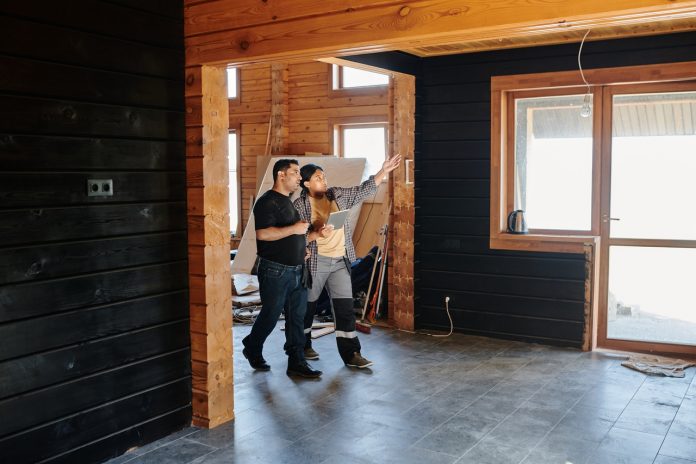6 Pitfalls to Avoid When Starting a Contracting Business
With new businesses experiencing an average 20% failure rate in the United States, many individuals don’t pursue their entrepreneurial dreams and opt to continue punching a time clock daily. But, if you’re one of the thousands of general contractors still considering opening a firm despite this risk, you must recognize potential mistakes that threaten your business. While there is an entire laundry list of things that can go wrong in the construction industry, and as a company in general, this article covers the top six pitfalls to avoid when starting a contracting business.
Mistake #1: Inadequate Insurance Coverage
It’s a common mistake for construction companies to only buy general liability insurance for contractors, assuming it will cover anything and everything that goes wrong. Or, worse, additional coverages are in place but don’t provide enough protection for a project’s scope.
The reality is that protecting your general contracting company from liability is never a one-and-done scenario. Instead, it’s an ever-evolving process that requires ongoing review as part of a larger risk management strategy. For example, if you’re a newly minted business owner in the construction industry, you might be trying to save money by only purchasing third-party claim coverage. Unfortunately, this can prove to be a devastating mistake if and when things go wrong on the job.
Typically, construction businesses need many of the following policies:
● General Liability
● Workers’ Compensation
● Commercial Auto
● Professional Liability
● Tools & Equipment Coverage
● Commercial Property
● Business Interruption Protection
Before you panic at the potential cost, ensure that insurers can often bundle some of these policies into a larger, discounted Business Owner’s Policy (BOP). Also, consider that it only takes one workplace injury or breached contract to devastate your young contracting company.

Mistake #2: Skipping the Business Plan
There are many things in life where you can wing it, but not when running a general contracting company. The construction industry is full of risks and competition. However, if you don’t take the time to create a thoughtfully-written business plan, achieving success becomes much more difficult.
Invest time and effort into a well-developed business plan for successful growth and informed decision-making. Running a profitable general contracting company requires long-term strategizing regarding operational performance, employee management, branding, financial security, and more. This document will be invaluable in guiding your new construction firm and should include much of the following information:
● Company details
● Market research
● Revenue expectations
● Industry trends
● Staffing needs
● General financial information
● Leadership details
● Future goals
The Small Business Administration provides a step-by-step guide on how to write your business plan, including best practices for how to use it. However, don’t also mistake treating this process as a one-time-only responsibility. Your new contracting biz will grow and evolve its brand over time, so assess and update this document every few years or when significant changes occur. Keeping your company agile will ensure you make business decisions with the most current data.
Mistake #3: Your General Contracting Business is Underfunded
This is a frequent miscalculation that happens all the time to newly-founded construction firms. It’s often the result of inadequate business research and assumptions about running an operation. These two factors spell out serious financial struggles that could lead to years of debt and unprofitability.
Don’t dig your contracting firm into a money pit; ensure all necessary startup costs and funding for growth are available. This means putting together a solid business plan to attract investors and convince loan companies to financially back your company.
You also must ensure that any bids you submit accurately estimate projected costs to avoid scrambling for additional financing mid-project. Underfunded construction work often leads to frustrating delays, which could open up your firm to breach of contract suits by clients.

Mistake #4: Poor Employee Management
Your team is the lifeblood of your general contracting business, but they can also drag your bottom line if not properly managed. Unfortunately, it’s a bad habit common throughout the construction industry. Companies hire large subs and laborers to quickly scale their workforce for a new project. This can lead to poor hiring choices and higher turnover, hurting employee morale. Situations like this also make it hard to let go of workers who aren’t meeting expectations because of understaffing issues.
The final impact on your company can be hugely negative because of inefficiency and increased mistakes resulting from poor staffing processes. Remember, the focus on headcount shouldn’t outweigh your team’s skills and dedication to performing their best.
Create a solid hiring process that thoroughly vets candidates and provides consistent workplace best practices. If you don’t have an HR team, get one. Their employee management experience will prove invaluable when supporting your goals of getting the best talent onboard and creating a safe work environment for everyone.
Mistake #5: Making Poor Contract Bids and Decisions
When launching your general contracting business, you’ll be fired up to land as many contracts as possible to rocket company growth. This can be a thrilling experience and leaves you forgetting about the standards you have in place for accepting work. Unfortunately, it’s a common problem for contractors that has devastating impacts on not just the financial aspects of a construction business but its reputation.
Always take the time to review bids and contract offers thoroughly. If you don’t have time, ensure you have someone who understands your industry that can. They will ensure key aspects are covered, including:
● Costs (materials, labor, permits, etc.)
● Project scope
● Milestones
● Deadlines
● Deliverables
● Liabilities
● General Terms
As you can see, many aspects of the bid and contract processes require careful consideration and understanding of your firm’s project liabilities. Be vigilant about spotting potential language that is overly vague or calculations that undervalue a job’s overall cost.
General contracting firms that don’t perform due diligence when bidding or accepting jobs frequently find themselves the target of breach of contract suits. This can potentially devastate their finances and ruin their business reputation early on.

Mistake #6: Failing to Learn About Your Market Audience
It’s easy to assume that marketing strategies go on the back burner when first opening up contracting biz. New entrepreneurs may want to take a broader advertising approach, but this can be more costly in the long run.
By not investing in an in-depth analysis of your current market, studying consumer trends, and creating your buyer personas, you’ll spend more reaching a larger audience. Plus, because your ads aren’t targeting specific demographics, advertising dollars get wasted on audience members without any interest in your services.
Understanding the full scope of services your contracting business offers can help your marketing efforts better target the customers you’re hoping to attract and establish working relationships with.
Your Contracting Business Has a Bright Future
While mistakes will happen when launching a new company, many of those outlined in this article are mostly avoidable or can be mitigated with some planning. In addition, incorporating elements like a comprehensive general contractors’ insurance policy will create a secure foundation that protects your brand, team, and clients.
Thank you for reading 6 Pitfalls to Avoid When Starting a Contracting Business


